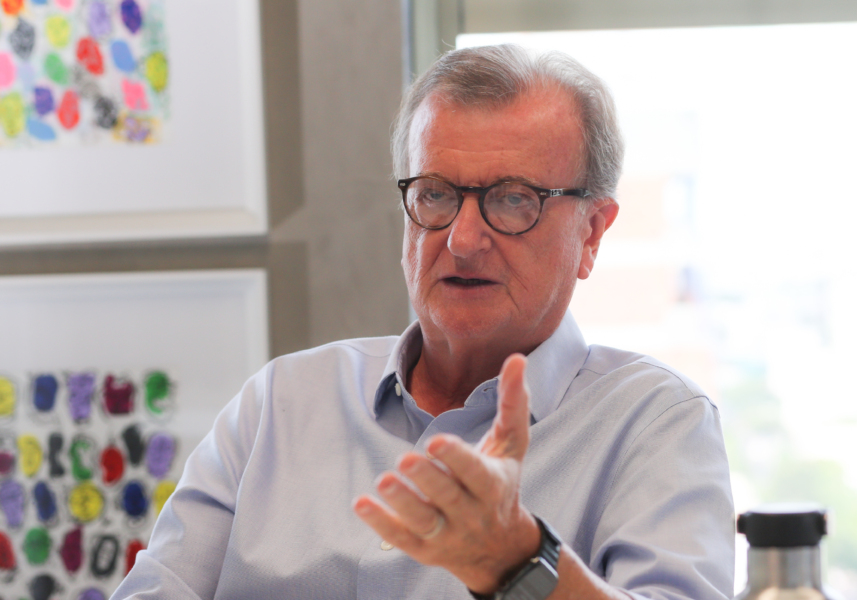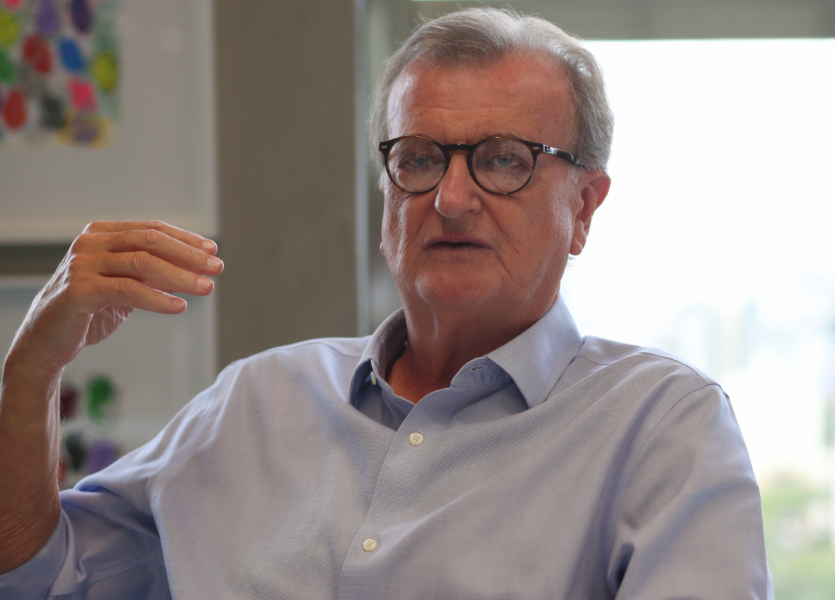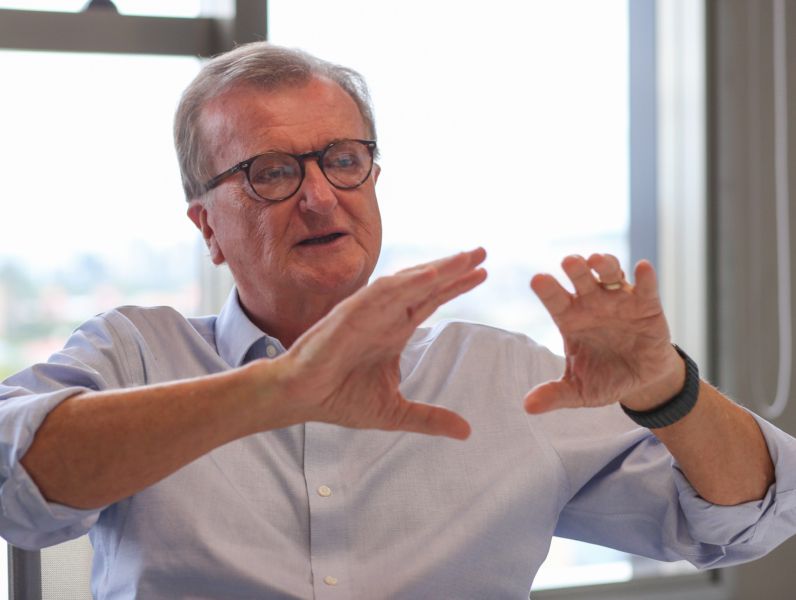
One of the most recognized executives in the country, José Galló accumulates among his attributes the strategic vision, the innovative differential, the keen eye for the competition, in addition to the entrepreneurial soul and the passion for what he does. Responsible for taking Renner to the position of one of the main retail chains in Brazil, the largest in the fashion segment, Galló was at the head of the company's operations from 1991 to 2019 – 20 of which as CEO.
Galló joined Renner with eight stores and a market value of less than US$ 1 million. Turned her into a giant. Today, there are 660 stores in Brazil, Argentina and Uruguay; around 24,000 employees in the Renner, Camicado, Youcom, Realize CFI and Repassa businesses; and market value in excess of R$ 15 billion. In 2022, the company recorded net operating income of R$ 13.27 billion.
As Chairman of the Board of Directors since 2019, after completing a planned transition process, Galló continues to impress his leadership style and his philosophy of enchantment, which has become an efficient and consistent strategy for Renner, ready for the challenges that arise. In his book O Poder do Encantamento, published by the Planeta Strategies label, from Editora Planeta, he asks:
“Are we ready for artificial intelligence? How to deal with analytics, robotics, 3D printing, virtual reality, the internet, networks and sensors (…) At first, the new is always scary. But it never comes to fruition all at once. There has always been and always will be a stage, giving time for absorption and adaptations (…) The most important thing will be the attitude of each person in the face of all this.”
O Reputation Feed sought out Galló to hear from him a little about how companies and leaders must navigate in this world increasingly absorbed by the perception spread by social networks and managed by algorithms. He left there with inspirations and many references.
Below are the main excerpts from the interview that Galló gave in his office, where he keeps a collection of relevant titles and has a beautiful view of Porto Alegre.
How to travel in this world practically managed by algorithms, fake news and misinformation? How does this affect reputation and the business environment?
Fake news is focused on fear, hate, negative things. Our brain is much more prepared to capture and give importance to negative things than to positive things. In fact, studies indicate that it is six times more difficult for people to believe the truth than fake news. People began to realize more, from the use of algorithms. In addition, people are absolutely vulnerable to social media, which have a series of tools that capture the most varied information. In recent years, we have seen fake news being used for political manipulation. In the United States, Trump (Donald, President from 2017 to 2021), said what he wanted, lied, and, incredible as it may seem, people liked him, said he was authentic. Approvingly, he exploited people's fears with speeches against immigrants and against China, for example.
In terms of business, what is the impact of fake news and polarization?
At first, fake news affects the image of people and companies. In polarization, the attacks are mutual. (The goal is) destroy that person, his reputation.

If the company is boycotted by polarized networks, how should it proceed?
Strong brands are generally not boycotted. And there are companies that counteract fake news. You have to react, you can't stay still. But you have to react in an intelligent way, in a way that doesn't throw gasoline on the fire.
In this sense, are companies carrying out risk mapping in relation to what is disseminated on social networks?
Companies usually have a crisis committee prepared and trained for this, not only for the issue of fake news, but for any negative news. A crisis committee is set up, with directors, press relations, the legal area and a permanent on-duty staff.

“You have to take very seriously that prevention is better than cure. It is possible for a company to rank the problems it may have.”
How should leaders position themselves today? How to maintain authenticity in this environment?
First, you need to assess the risks. What are the risks? Everything comes in: risk of cyber attack, supplier guarantee, each company has its own risk. You have to take it very seriously that prevention is much better than cure. Get ready. Typically, in larger companies there is an audit and risk committee. A crisis manual can be made, predicting the types of problems and to whom they should be addressed in order to resolve them. People have to be trained, media training to know how to react to situations, they have to have a spokesperson to make things clear. There always needs to be a company position. There are several types of crisis and black swans, that crisis that is totally unusual. But it is possible for a company to rank the problems it may have. First you need to see the risks, then work on them in the best possible way.
When this crisis is of reputation, what is the dimension for a company?
If the company handles a reputational crisis well, as it should, with this crisis committee, the press office and the crisis office working well, it manages to minimize the damage. Some damage will always stay. If the company does not cope well, the damage is much greater.

Can reputation crises break a company?
No, it doesn't break. Strong brands that do things well, no. For example, there was a situation at Renner, at a time when it was fashionable to wear coats of arms on clothing. We made a jacket that carried a coat of arms that social media associated with the brand of an extremist band. The band had not existed for 20 years. As soon as the situation took off, we made a crisis committee, with 15 people. We determined to store managers that exposed or rear parts should be removed immediately, rolled up, placed in a package and sent immediately to the warehouse. We make 15,000 prints a year and, unfortunately, we didn't know about that band. We informed the public of this, reinforcing that we are non-partisan and without ideologies, and communicated that all the pieces had been collected, would no longer be sold and would be incinerated. The case came up at 10am, by 2pm it was already clear that we had resolved it. These things last three, four days, then they pass.
What is this due to: strong brand, credibility, reputation?
Brand credibility. If you are a company with a positive brand, which respects ESG principles, does things well, is close to the consumer, a brand with a soul, it will resist the crisis much easier. I've never seen a company fail because of this. It's boring, it messes with reputation, but if you treat it well, it's easier (resist the crisis).
Christianne Schmitt is an editor for the Reputation Feed
christianne.schmitt@ankreputation.com.br
• Read more about the vision of the Chairman of the Board of Directors of Lojas Renner at quick game interview about reputation, books and the future, in seven questions for José Galló



